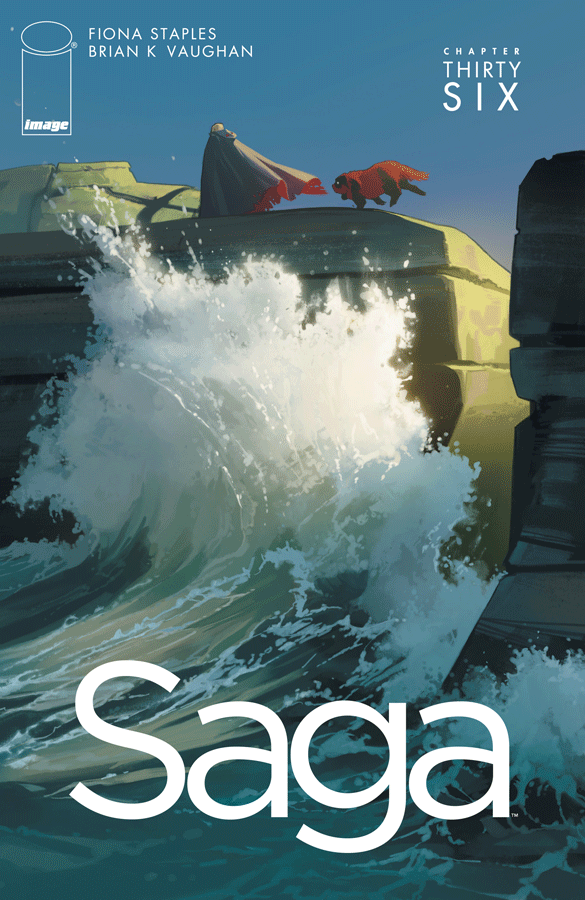Comics changed for the better in March 2012 when Image Comics debuted a series it promised would be a unique cross between science fiction and fantasy. Produced by writer Brian K. Vaughan, who had just wrapped up "Ex Machina," and artist Fiona Staples, who is the co-creator of the title with Vaughan, "Saga" was a captivating page-turner from the very first issue, and that continues in #36.
"Saga's" publishing schedule was unique at the time. While the six-issue story arc format wasn't exactly something new, the creative team's hiatus between their arcs and their public acknowledgment that the extra time was needed to ensure the quality of the books were something of a revolution and a revelation. The result is one of the most consistently enjoyable titles for adults on the shelf. Set amid a long-standing war, the family drama focuses first on the characters and their struggles to simply live their lives; Vaughan's depiction of the marriage -- the beating heart of the book -- has never gone out of its way to be a contrived attempt at perfection, which continues to great effect here. Because people aren't perfect, marriages aren't perfect, and Vaughan's characters all have deep flaws that frequently affect the story's direction, and the same goes for their latest chapter.
The open admission of those faults by the characters themselves is one of the title's most immediately endearing qualities. Alana and Marko grow and learn together, and they make plenty of mistakes as they go. Vaughan trusts his characters to stumble but eventually find their way, and so it is with issue #36. After our little family stumbled along in the previous arc, Vaughan uses these six issues to come full circle. Characters we haven't seen in a while resurface to join the fray in a series of smooth transitions made possible by Vaughan's thoughtful pacing.
Fiona Staples keeps the backgrounds in her panels simple and functional because this issue is all about the individual characters. Unlike so many comics where no time has passed, several years have gone by since "Saga's" first issue. Staples has done a masterful job of adding age, body art, girth, scars and time itself to the cast. The characters propel the story, and their locations are largely immaterial, so facial expressions are particularly acute in this issue. Staples makes these expressions a physical dialogue of their own and includes some great personal interactions.
With the consistently excellent combination of Vaughan's intriguing story and Staples' intelligent art, "Saga" is the reason you pick up your comics on Wednesday rather than waiting until the weekend.

